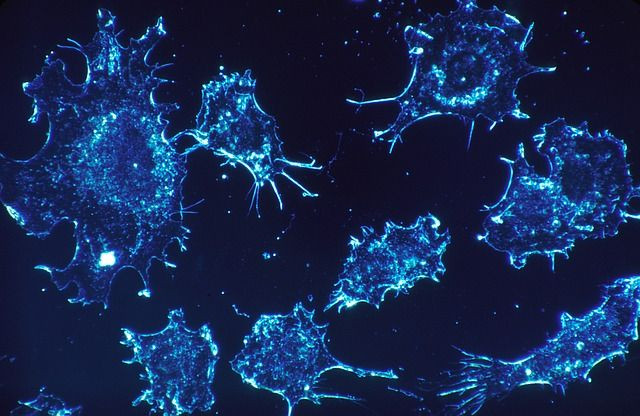Is Cancer Cure Possible? Scientists Create New Virus To Kill Infected Cells

In a breakthrough discovery, scientists have developed a new virus to treat cancer. The cowpox style virus, called Vaxinia CF33 Oncolytic Virus (OV), has been created to kill all types of cancer cells.
The experiment was proved successful in an animal study. Now the researchers are preparing for a human trial, which will begin next year. Initially, the researchers will specifically focus on triple negative breast cancer, lung cancer, melanoma, gastric, bladder and bowel cancer.
The research team believes that a trial on various types of cancer can help them identify the most effective areas of treatment faster than testing on one type of cancer.
During the trial, the research team will inject the newly developed virus into the infected areas. The injected virus will infect the cancer cells, replicate in the tumors and eventually kill the tumor cells while leaving the healthy cells unharmed.
The new treatment is being engineered by U.S. cancer expert Yuman Fong and it is being developed by an Australian biotech company Imugene.
Cancer killing viruses were proved effective from the early 1900s. When people got vaccinated against rabies, the cancer cells disappeared and they went into remission, Fong told Daily Telegraph.
Last year, scientists in the United States developed a virus to treat brain cancer. The virus that causes common cold effectively shrank tumors in some patients. Meanwhile, melanoma, a form of skin cancer, is being treated with the help of a modified form of cold sore or herpes virus called T-Vec or Imlygic.
Australian researcher Tom John and his colleagues from the Olivia Newton John Cancer Research Institute also developed a virus to treat lung cancer. The virus treatment along with immunotherapy Keytruda was proved successful in some cancer patients.
“[But] the problem was if you made the virus toxic enough to kill cancer you were worried it would also kill man,” Fong said.
But professor Fong believes the newly developed virus will be safe for human consumption and it could be the best way to fight cancerous cells. But people will have to wait a little longer for the new treatment to be seen in use at the hospitals.
“When it is tested in a human we will see whether the immune system mounts a defense against the virus and knocks it off before it gets to the cancer or there could be nasty side effects. Cancer cells are very clever, they are true Darwinians that mutate to survive and there is a likelihood they will evolve to become resistant to the virus as they do now to become resistant to chemotherapy and immunotherapy,” Cancer Council chief Professor Sanchia Aranda told the Daily Telegraph.
© Copyright IBTimes 2025. All rights reserved.





















